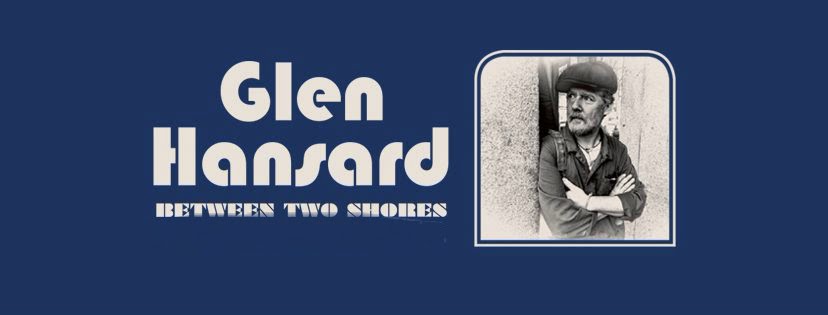
A few years ago, during a tour break, Glen Hansard and his band entered into Wilco’s studio in Chicago and recorded a handful of new songs. Inexplicably this American session ends up in oblivion until last February, when the Irish artist picks it up again, adjusts some lyrics, and publishes it in its entirety.
This is the little story behind the creation of “Between Two Shores”, the third solo album by Glen Hansard. It is a session with new material more than a new album.
There are ten songs, the sound is dry, with no frill, and excessive tweaks. One of those albums that are good for the soul, direct and comforting.
Let’s be clear, it is nothing new from Glen Hansard’s planet, who has accustomed us to an extraordinary mix of styles ranging from ballads to Soul, passing through his Ireland until reaching the triad of Bob Dylan, Van Morrison, and Leonard Cohen.
Once again, the Dublin artist goes straight to the heart of the songs with simplicity, as if it were the task of the music itself to find its place and breathe. It is real like a live session.
In fact, one of the credits of this album is the absolute absence of mystification and the eager to please complexity of these times. No pomposity of arrangements, overdubs, or digital corrections. Nothing, except the strength of the songs.
The album opens with the rolling rhythm of “Roll on Slow”, a sort of homecoming in the Sunday morning light, with Thunder Road on the radio, just like Roy Orbison did in ’75 for the getaway nights of Bruce Springsteen.
“Why Woman” is the first of many soul ballads of the album, a sweet reflection on the beautiful things that ideally should remain even when relationships come to the end.
It is an unexpected organ with a vague sixties mood to open “Wheels on Fire”, a bitter song about the world and the liars around us. Not a political song in the strict meaning, the protagonist of the story is not known; however, he is someone who will fail, building to divide and preaching to destroy; “you can turn and twist but we will overcome”.
With the fourth song we return to the classic world of Glen Hansard. “Wreckless Heart” is one of the many beautiful ballads lost in the poetry of despair. Ride the river to the sea and let things go because there is no cure for separation.
Side A closes with “Movin’ On”, the younger daughter of “Her Mercy”, about redemption and the importance of going on even with blood in the heart, with flesh and bones as on a Strange Boat sung by the Waterboys.
Turn the vinyl and Side B starts with “Setting Forth”, instinct and the doubts of a lifetime pushed forward with the sound of percussion, piano, and strings. This is another one of those songs that many songwriters would kill for and Glen Hansard can afford to forget in a drawer.
“Lucky Man” and “One of us Must Lose” are some of the highest moments of the record. The first one seems to be a dream coming out from Jimmy Rabbitte’s mind; the Dublin Soul of Roddy Doyle’s The Commitments. Soul music flows between the horn section and the Hammond organ played by Justin Carroll.
The strings, a reverberated piano, and a Beatles’ drums introduce “One of us Must Lose“, the song that will be the soundtrack to accompany my upcoming winter months.
The simplicity of the harmonies is what makes Glen Hansard an artist of a superior category and if songs like these that were seriously risked to remain in oblivion, we can hope a lot for the next record.
Marketa Irglova joins the band for “Your Heart’s not in it” that moves us to to the last pearl of the album: “Time will be the Healer” that closes “Between two Shores” with the grace of all great songs.
Words are whispered and shouted like bridges on a river of pain. A song written by the helm of a burning ship, as Bob Dylan would say. Time will be the great healer, your friends and neighbours, it will be your work to keep you alive in terrible times. A true and full life is the best revenge sings Glen Hansard, who goes deep straight into your soul as if he were your best friend, your hangover companion, and lifetime pal.
“Between Two Shores” is perhaps a rash and risky operation. A record full of great little songs amplified by the recklessness of an artist unafraid to show his music naked. Accustomed to a music system overloaded with band and fiction, this record, starting with it’s retro cover, is something that brings music back to the center of things, as it should be.
Don’t think Twice, Glen, it’s Alright!
Carlo Puddu
(thanks for the translation to Kelly Fries the Minneapolis N.1 GH’s fan!)
